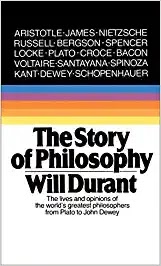Shall we learn meanings of some ‘isms’ now?
# Theism : It is the belief in the existence of a God or gods; In this belief system God is viewed as a creative source of everything that happens in this world.
A person who believes this doctrine is called ‘theist’
# Atheism : It is the lack of belief in the existence of God or gods. Atheism is the rejection of religious belief.
A person who holds such a way of thinking is called ‘atheist’
# Agnosticism : Agnosticism is the way of thinking that says the existence of God is unknown and unknowable. It is not committed to believing in either the existence of God or non-existence of God.
A person who holds such a thought is called ‘Agnostic’.
# Rationalism : A practice that opinions and actions should be based on reason rather than on emotion or religion.
A person who practices rationalism is called ‘Rationalist’.
# Humanism : It is a rationalistic outlook which gives more importance to human life rather than supernatural matters. It prefers critical thinking to dogma or superstition.
A person who holds humanist thought is called ‘Humanist’.
e.g., Alice Roberts is a humanist.
# Humanitarianism : It is an active belief in the value of human life, helps people who are suffering and saves human life from pain, distress, calamity etc.
A person who actively helps the distressed and the disadvantaged is called ‘Humanitarian’
# Communism : A theory which advocates that all the private property must be abolished and everything should be owned by community in common. The main proponent of this theory is Karl Marx.
Practice
Identify the following persons with their ideologies. Write the names of ideologies against their names.
1. Robert Green Ingersoll
2. Vladimir Lenin
3. Pope John Paul-II
4. Richard Dawkins
5. Jamsetji Tata


